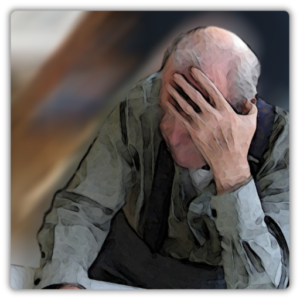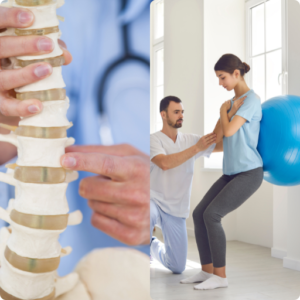What is the Connection Between Falls and Dementia?
 People with dementia, particularly those subsequently diagnosed with dementia, face an increased risk of falls. The cognitive decline associated with various forms of dementia can increase the likelihood of falls, leading to trauma. Moreover, falls may also accelerate dementia’s progression, creating a greater risk for those living with dementia.
People with dementia, particularly those subsequently diagnosed with dementia, face an increased risk of falls. The cognitive decline associated with various forms of dementia can increase the likelihood of falls, leading to trauma. Moreover, falls may also accelerate dementia’s progression, creating a greater risk for those living with dementia.
Research indicates that older adults, especially the million older individuals diagnosed with Alzheimer’s disease or other related dementia, experience an increase the risk of developing dementia. Trauma from those falls may cause further complications, prompting medical professionals to emphasize preventive measures to mitigate the risk of developing dementia.
Institutions like the center for surgery and public health are focusing on understanding how these factors interplay. The trauma from falls not only poses immediate health concerns but can also make dementia worse, underscoring the need for targeted interventions for older adults.
KEY POINTS
Older adults with dementia have an increased risk of falls, which can accelerate cognitive decline and worsen dementia symptoms.
Falls can contribute to the progression of dementia by causing trauma, which may lead to further cognitive impairment and a higher risk of diagnosis.
Preventive measures such as regular exercise, environmental modifications, and medication monitoring can help reduce fall risks among older adults.
Early detection of cognitive decline and proactive interventions can improve stability and minimize the risk of falls in aging individuals.

Pop in your email below, and we’ll zip it straight to your inbox so you never lose it!
What Are the Risk Factors for Falls in Older Adults?
Falls in older adults can be influenced by various factors, particularly those with a diagnosis of dementia. Different types of dementia, such as vascular dementia or Alzheimer’s disease and related dementias, can worsen dementia symptoms and subsequently increase the risk of falls.
Research indicates that approximately 5 million older adults may have a diagnosis of Alzheimer’s disease, and these patients may experience a progression and make a diagnosis more likely. This leads to an increased risk of falls, especially in those who don’t have dementia but are at risk due to other health issues.
Moreover, falls were associated with sustaining a traumatic injury, and the increase dementia risk factors can further exacerbate the situation. As dementia diagnoses become more prevalent, understanding how these factors interplay is crucial for effective diagnosis and treatment.
How Can Falls Accelerate Dementia Onset?
Dementia is a progressive disease that often affects older people. Fall injuries in older patients can lead to cognitive impairment, subsequently increasing the risk of cognitive decline. Adults who have a fall may experience worsening symptoms, which may increase dementia risk and lead to a future dementia diagnosis.
Patients who experienced a fall are at a higher risk of being subsequently diagnosed with Alzheimer’s disease or Lewy body dementia. Research indicates that those who may have had dementia prior to sustaining injurious falls in older adults could see an accelerated development of dementia. As dementia progresses, the advanced dementia symptoms may become more pronounced.
What Are the Stages of Dementia Related to Falls?
 Dementia often progresses through stages where cognitive decline can impact physical stability. In the early stages, symptoms that seem mild may not immediately lead to falls.
Dementia often progresses through stages where cognitive decline can impact physical stability. In the early stages, symptoms that seem mild may not immediately lead to falls.
However, as the disease advances, dementia may increase the risk of falls. A formal diagnosis of dementia may occur after injurious falls, as falls are a leading cause of injury in patients with dementia.
Ultimately, dementia later in life can significantly heighten the risk of falls and cognitive decline, making awareness of these risks crucial in managing new dementia cases effectively.
How to Prevent Falls Among Older Adults with Dementia?
Preventing falls among older adults with dementia is crucial, as these incidents can lead to serious consequences. A dementia diagnosis often follows injurious falls, which may result in a traumatic brain injury.
To mitigate risks, ensure safe environments, encourage regular exercise, and monitor medications that may affect balance.
What measures can improve cognitive health to prevent falls?
To enhance cognitive health and prevent falls, dementia patients should engage in regular physical activity and cognitive exercises. Early identification of symptoms of dementia allows for timely interventions. Additionally, managing environmental hazards can reduce risks, as the disease may contribute to impaired balance. A dementia diagnosis after injurious falls underscores the need for preventive measures.
Which interventions can decrease the risk of falling?
Regular exercise improves strength and balance, significantly reducing fall risk. Incorporating balance training and flexibility exercises into routines can enhance stability.
Ensuring a safe environment by removing trip hazards, using non-slip mats, and installing grab bars is crucial. Additionally, regular vision and medication reviews can mitigate risks further.
What Should You Do If an Older Adult Falls?
If an older adult falls, the first step is to stay calm and assess the situation. Check if they are conscious and responsive. If they are injured or unable to get up, it’s important to call for help immediately. Avoid moving them, as this could worsen any injuries. Instead, reassure the individual and keep them comfortable while waiting for emergency assistance.
Once help arrives, provide as much information as possible about the fall and any visible injuries. After the immediate situation is addressed, it’s essential to evaluate the cause of the fall to prevent future incidents. Consider arranging a medical evaluation to ensure their overall health and safety.











